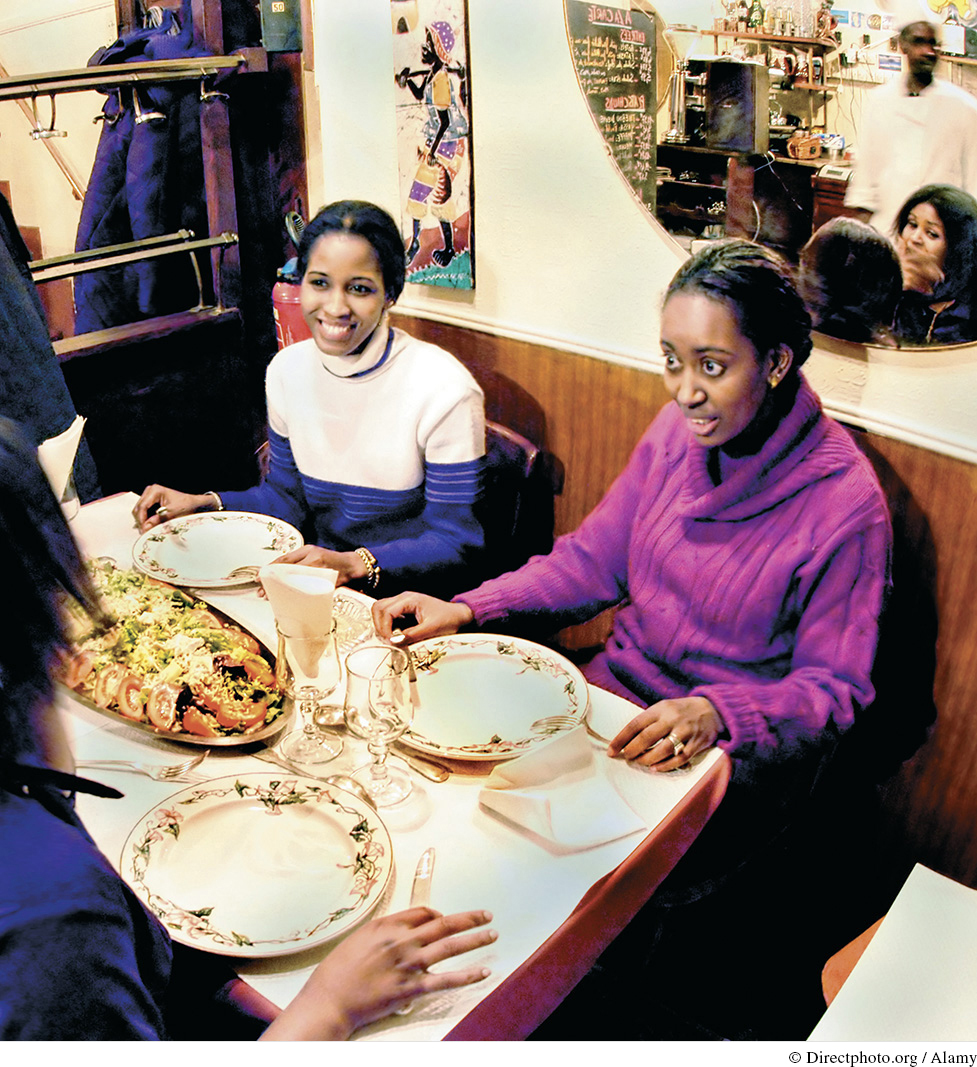Introduction for Chapter 29

THÉRÈSE IS A CONGOLESE IMMIGRANT to France who arrived in Paris in the late 1970s with the help of a brother who worked for an airline. Thérèse had been well-known in Africa as the teenage girlfriend of pop singer Bozi Boziana, who wrote a hit song about her. Congo’s political instability had made her search for safety in Paris, however. Once there, Thérèse remained famous among African immigrants because she ran nganda, or informal bars, for them. Like Thérèse, the immigrants who frequent her nganda are often Congolese and other Africans who have settled in Paris, many of them illegally. They flock to her nganda because they like her stylish dress, the African food she cooks, the African music she plays, and the African products she sells. Many of Thérèse’s small bars and eateries have flourished, only to be closed down by landlords who want more of her handsome profits or who object to her running an unlicensed café. Despite such obstacles, Thérèse keeps business going by moving her faithful clientele around her Paris neighborhood from basement to shop front to spare room. Thérèse is a new global citizen, counting on networks back home for supplies, constantly on the move because she lives on the margins of legality, and always striving to make a good living.
Thérèse’s story is just one example of the ways in which people in the post–cold war world crossed national boundaries while maintaining crucial ties around the globe. The end of the cold war rivalry between the superpowers paved the way for a more intimately connected world. In the 1990s, globalization advanced further with the dramatic collapse of communism in Yugoslavia and then of the Soviet Union itself. The world was no longer divided in two by heavily guarded borders and hostile cold war propaganda, allowing nations and individuals more opportunity to trade and interact freely. The Common Market transformed itself into the European Union, which from 2004 on admitted many states from the former Soviet bloc. The telecommunication systems put in place in the 1960s advanced globalization, binding peoples and cultures together in an ever more complicated social and economic web. The World Wide Web and its offspring social networking even united them to enact stunning social and political change.
The global age brought the vast national and international migration of tens of millions of people, an expanding global marketplace, and rapid cultural exchange of popular music, books, films, and television shows. On the negative side, the new globalization also brought lethal disasters such as epidemic diseases, environmental deterioration, genocide, and terrorism. Nations in the West faced competition from the rising economic power of Asia and Latin America. International business mergers accelerated in the 1990s, advancing efficiencies but often threatening jobs. Millions of workers in this interlinked economy discovered that the global age was one of both opportunities and insecurities. (See “Terms of History: Globalization.”)
The end of superpower rivalry resulted in the dominance of a single power, the United States, in world affairs. When the United States sought to exercise global power through warfare, however, European states would often resist, just as the Soviet satellites had pulled away from the USSR. New forces, including the economic power of non-Western countries and the cultural might of Islam, created new centers of influence. Some observers predicted a huge “clash of civilizations” because of sharp differences between Western civilization and cultures beyond the West. Others, however, saw a different clash—one between a Europe reborn after decades of disastrous wars as a peace-seeking group of nations confronting an imperial United States that, like Europe in the nineteenth century, was frequently at war around the world. Globalization in either of these scenarios could bring global splintering or even catastrophic warfare.
CHAPTER FOCUS How has globalization been both a unifying and a divisive influence on the West in the twenty-first century?
More immediately, globalization brought economic struggles for many. Beginning in 2007, the global economy collapsed, resulting in widespread hardship. U.S. recovery came first, but as Europe and the rest of the world flagged, it became apparent that a reenergizing of economic capacities was needed. Illegal immigrants continued to move into Europe because of its safety and high standard of living, and to the United States because of the promise of opportunity. The fate of Thérèse amid this uncertainty we do not know.